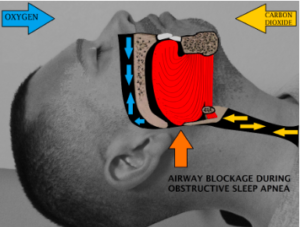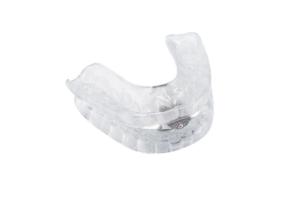There is a wide range of anti-snoring aids available to buy online or at your local pharmacist nowadays. These are affordable and relatively simple devices that include mouth patches, mouth guards, chin straps and nasal strips and dilators.
But do they work? The good news is that there is some clinical as well as anecdotal evidence to support their use. It’s worth noting, however, that finding what works for you as an individual is critical.
Here we take a look at the most common snoring aids and what evidence supports their efficacy.
Mouth Patches
One of the most common snoring aids is the mouth patch. This is essentially a small butterfly-shaped porous patch with a sticky side that you place over your lips. Its role is to keep your mouth lightly shut so that you don’t snore and you breathe more through your nose.
According to many advocates, encouraging nose breathing has a lot of other benefits as well, including better sleep at night. It also helps filter out the air so that things like pollen and dust don’t get into your lungs.
A study in 2014 looked at the use of mouth patches for people who suffered from mild sleep apnoea. They were all mouth breathers and subjects found that using mouth patches significantly decreased their level of snoring. Mouth breathing plays a significant role in the physiology of snoring for many sufferers and closing the mouth and promoting nasal breathing helps to open up the airways better. It also potentially improves the quality of sleep.
Mouthguards
While they can take a bit more getting used to compared to mouth patches, mouthguards are also intended to improve nasal breathing and open up the airways. These fit inside the mouth around the teeth and can either push the lower jaw forward a little or depress the tongue.
One of the side-effects of pushing the jaw forward a little is that some users develop an ache which can affect sleep.
There is some important evidence that the use of a mouthguard that holds down the tongue can help reduce snoring, however, and has less risk of being painful.
In a study in the USA in 2019, 570 people who were snorers took part in an experiment using a tongue restraining intraoral device. It found significant reductions in the level of snoring and its frequency. What’s more both individual snorers and their partners noted a difference in snoring levels.
There is a wide range of brands when it comes to mouthguards and it’s important to choose one that feels comfortable and which delivers the improvements that you are searching for. Those that can be effectively moulded to the shape of your teeth and mouth are often easier to get used to.
Chin Straps
If holding something in your mouth all night doesn’t appeal to you, then you might like to consider a chin strap as an alternative. These again work by helping to keep the mouth closed and are usually made of a soft material like neoprene that is wrapped around the head and tightened.
If you are a nose snorer, then a chin strap probably won’t work for you as the main problem is not in the throat. If you are a mouth snorer it may well do and could be worth a try.
While there is anecdotal evidence that chin straps work for some users, there is little in the way of formal research currently to support this.
In one limited clinical study, the chin strap was able to improve the presentation of the upper airway anatomy and improved a condition of severe sleep apnoea while reducing snoring. Other research is less clear on whether there is a benefit to using a chin strap.
Nasal Strips
Nasal strips are another simple solution that can work to reduce snoring and they are also highly affordable. These are small strips of adhesive tape that fit across the nostril area and help to keep the airways open. They have become popular in recent years for athletes who want to improve their oxygen intake while performing but have been around as a snoring aid for a couple of decades.
Less noticeable than a mouth patch or mouthguard, if you don’t want something likely to be uncomfortable and disturb your sleep, then they are worth a try. Nasal strips are easy to apply and, depending on the product, should stay on all night with little discomfort.
There is a good deal of evidence that improving nasal breathing and encouraging it over mouth breathing can boost better sleep and reduce snoring. When we’re inhaling through the nose, there is less energy in the air taken in and this doesn’t vibrate the palate as it does in mouth breathing. Nasal strips are often used by people in conjunction with a nasal dilator or a mouth patch.
Nasal Dilators
Nasal dilators are internal devices that clip to the bottom of the nose and are normally made of some soft plastic material. They usually have a couple of prongs that help to widen the airways and the nostrils. Like nasal strips, their role is to improve airflow and encourage healthier nose breathing. They are slightly more obvious than nasal strips and can take some time to get used to.
A study undertaken in 2019 found that internal nasal dilators significantly reduced snoring time and improved sleep quality for the majority of participants.
Which Anti-Snoring Aid is Best?
Everyone is different and experimenting with a range of anti-snoring aids is a good idea to discover which works best. You may find that a simple mouth patch is all you need or you might settle for combining a mouth guard and chin strap that improves your snoring and gives you a better night’s rest.
It’s also important to persist with a snoring aid for a while until you get used to it. Even a little thing like a nasal dilator can feel a little uncomfortable at first but should be something that you acclimatise to over time.







